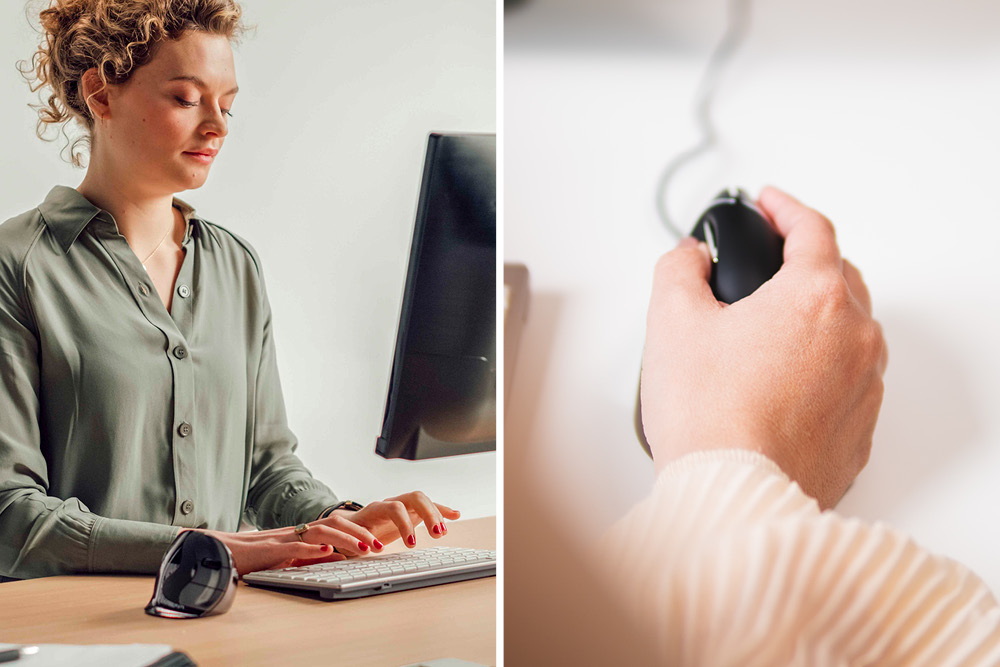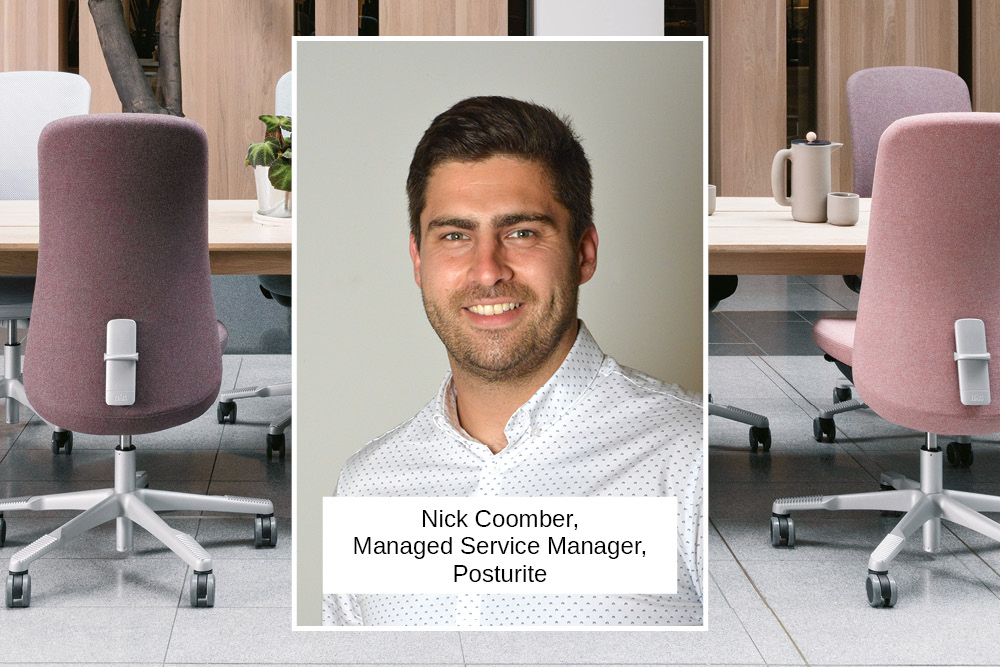
The complexity of running a business with your people working all over the world - in homes as well as offices - is not to be sniffed at. So if there’s a way to simplify one of the ways you’ll look after those people, you might grab it with both hands?
Bringing ergonomics to your staff is one of the best steps you can take to look after them, minimise their risks and introduce some comfort and wellbeing to their working days.
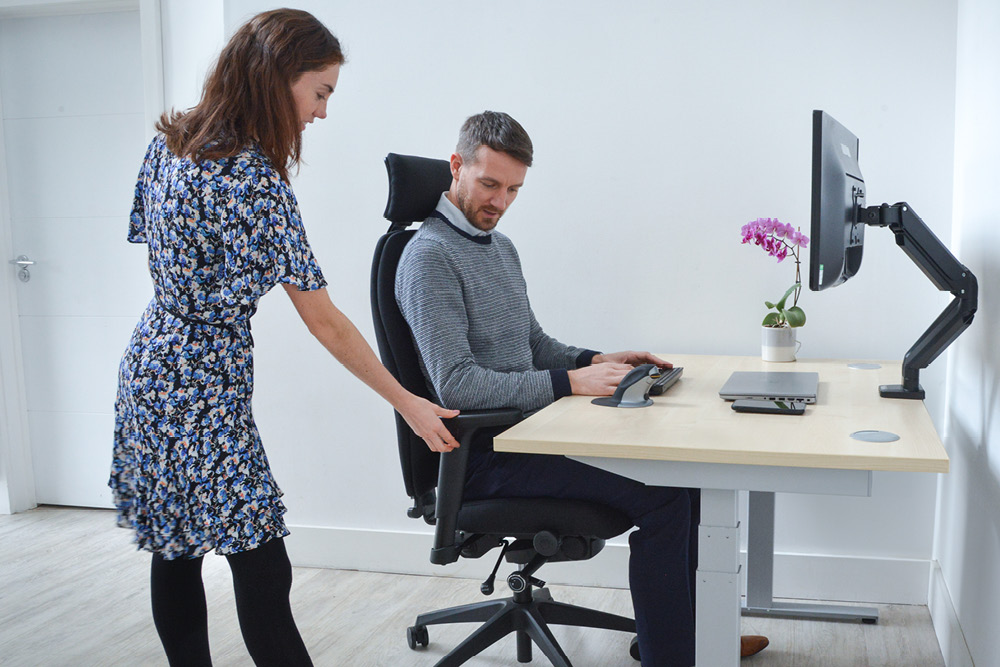
As an employer, you have the option to choose a ‘Managed Service’ from Posturite, meaning that the whole workstation assessments process is taken care of.
An efficient process that suits your ways of working will be set up for you. It can include initial online Display Screen Equipment Assessments (basically for anyone who uses a computer) and then triage calls (with real humans with real expertise of course!) for when issues are raised. The admin for all global staff, the allocation of resources and the careful keeping of an audit trail can all be managed for you.
Enter Suzie Monk, Case Manager for Posturite…

Case managers like Suzie in the Managed Service team are experienced DSE assessors and they offer workstation guidance to team members from Brazil to Brisbane every day.
- You work in Bombay and you’re finding your chair uncomfortable? Book a chat with Suzie.
- You’re a sales rep in Kuala Lumpur and need portable office kit that you can use on the road? Book a chat with Suzie.
This could include detail on how best to set up a workstation including the chair and desk, as well as the importance of breaks and other postural or ergonomic guidance. Your case manager can provide free learning resources and tips, and make some direct recommendations for effective ergonomic adjustments, keeping your health and safety manager informed and without going crazy with your budget.
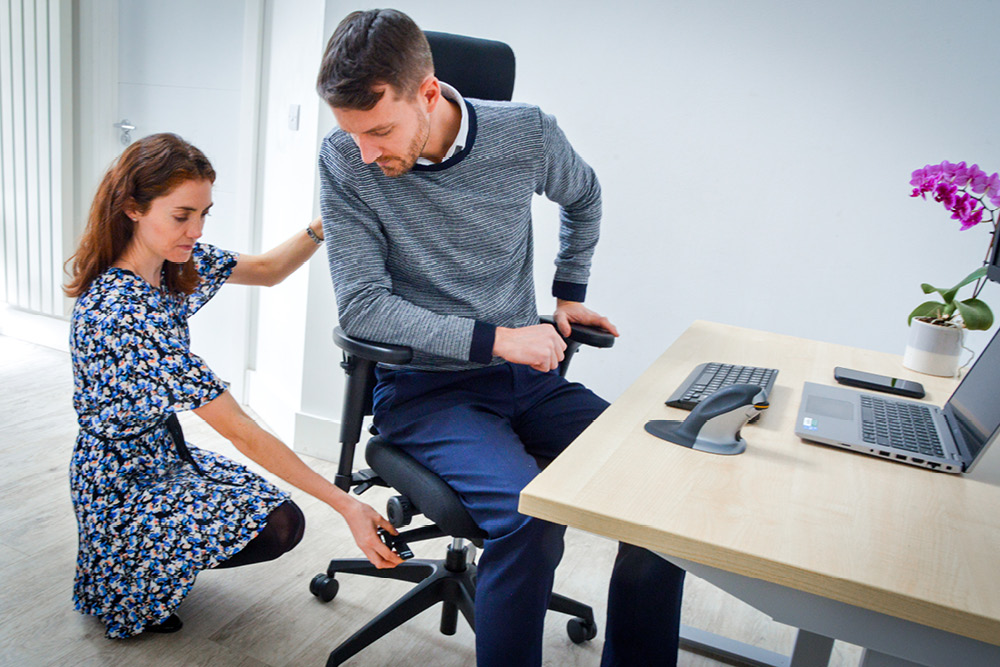
The case managers are troubleshooters – just not ones from the IT crowd.
Around 60% of the employees Suzie meets with are in pain
Speed is of the essence when your employee is in pain. An online triage appointment can quickly be set up and the case managers will take the time to listen carefully to the issue, ask further questions to understand the pain experienced and then offer advice and next steps.

“Advice about trying to get up and move really regularly can be one of the best things someone with work-related back pain can do, depending on the type of back pain” Suzie tells me. “And often assets such as a sit-stand desk or a wireless headset can encourage that movement and those changes in positions whilst working and help your team member.”
“I quite commonly see clients with wrist pain, who perhaps do a lot of typing and mouse work. There are some really good exercises for the forearms, wrists and hands I can share, and I explain about ergonomic positioning of your forearm, wrist and hand and how to reduce strain. One of my favourite ergonomic products is the Evoluent vertical mouse. I use it myself and have had good success with it! It’s a very comfortable computer mouse to use, it’s sculpted to your hand and relatively easy to get used to. Some of my clients find a vertical mouse helps very quickly.”
There are a whole range of small changes for big differences that Suzie and the team of case managers from Managed Service can recommend to employees all over the world.
“I think that a lot of people don't even take the time to think about their setup, so they will just be working and get into bad habits and never correct that or properly learn about it.”
But the DSE regulations are different in different countries?
They are indeed, so a global company’s policies on meeting the regulations for each region will be adhered to. But many Posturite clients choose to go above and beyond minimum requirements for working with Display Screen Equipment safely anyway, and are focused on optimum comfort and risk reduction. What you need is to give your employees the support they need before issues spiral into costly, productivity-draining problems.
Staff sitting on a bed at home to work?
Suzie confirms that unfortunately the scenario of employees working from home from a bed, and not a suitable chair and desk, is not unheard of.

It’s also common for staff to still be using a dining chair and not an adjustable ergonomic office chair when working from home – and this flouts clear UK Health and Safety Executive regulations.
“It’s very rewarding for us to help these people who are often in a great deal of discomfort because they're in that situation, and I see that their employers are happy to support them. I’m very concerned about people working from home with unsuitable equipment, four whole years after the boom in homeworking.”
Nuclear plants and prisons, as well as corporate headquarters
Lawyers, charity workers, university professors, traders, marketing gurus, executive assistants – we all benefit from good guidance on ergonomics. These are all clients that the Managed Service team work with, delivering a mix of online triage appointments, face to face appointments and sometimes also site visits – where the case managers walk around the offices answering queries and helping set up workstations correctly for individuals right there and then.
DSE assessments don’t just take place in the office buildings you’d expect. The variety of work venues keep Posturite assessors and case managers on their toes – including nuclear plants and prisons.
Advocating healthy working lifestyles
As a Loughborough University Sports and Exercise Science graduate, it will come as no surprise to hear that Suzie (pictured below left) remains a keen sportsperson. She runs cross country at a national level, so she exercises before and after work, and goes for a run at lunchtime!
She is a keen promoter of the Move More in ’24 message which encourages more movement during our working days – because our bodies respond badly to endless sedentary hours sitting at desks.
Her training in physiology, anatomy and human movement patterns is immensely useful when she analyses posture at workstations and then guides users on how to set up their workstations and manage their pain and discomfort. Because physiology deals with the function and malfunction of parts of the body.
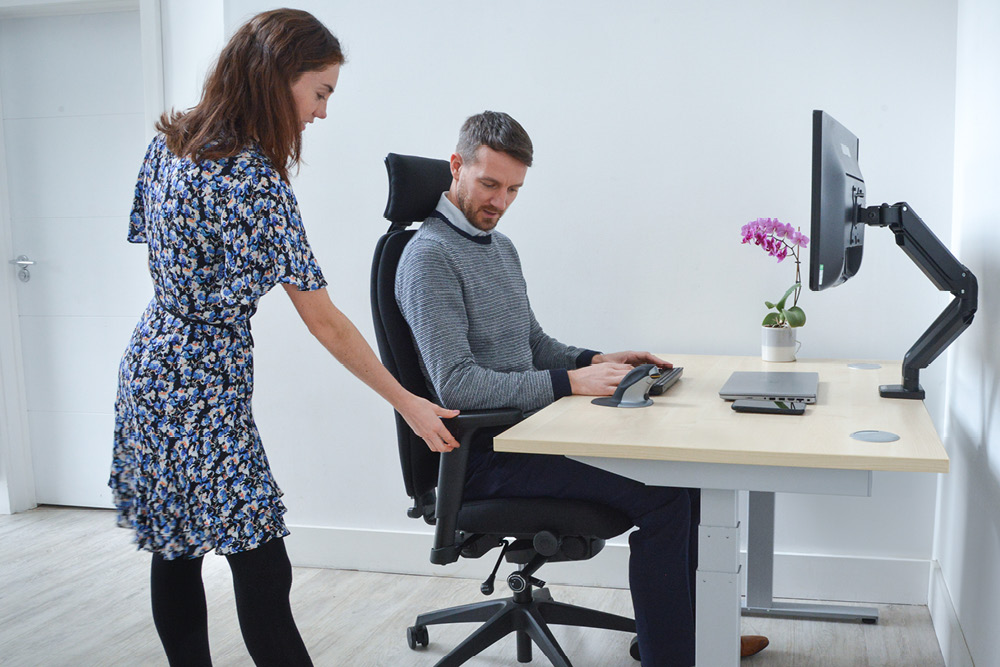
What about when our employees request support for neurodiversities?
Your case managers can support employee wellness in a wider sense too if you wish. Suzie and her colleagues can refer your staff members to the enablement team:
“I’m the initial point of contact for employees of some of my client organisations with disabilities and neurodiversities” explains Suzie. “So the first thing that I'll try to do is reassure people because I need to be sensitive and empathetic to their situation. My clients can sometimes be very unsure about the process or what help is out there. I explain about the specialist people I can refer them to if they wish. Word of mouth amongst colleagues about helpful responses then often spreads, and people are feeling much more confident to come forward.”
The Global Health, Safety and Sustainability Director at Fidelity International comments:
“Having both the DSE and the enablement services work alongside each other is very beneficial because we find that in most of the assessments we have done, people have more than one issue.
We want to make sure that employees feel supported. So if anything does come up within the wider wellbeing arena, we need to address these issues.”
And while ‘workstation assessments’ sounds a very formal and impersonal term, ultimately the service is all about helping individuals one-to-one. “One of my favourite parts of my case manager role is making a difference to someone. Often people come back to me later and tell me ‘actually these recommendations have really helped me!’”
Receive support from the Posturite Managed Service team by getting in touch here.
Read next:
- Do employees working from home need a DSE risk assessment?
- Hot-desking? Adjust that chair in just 60 seconds
- My workplace adjustments for ADHD – and my advice to others





